If your old boiler is still working well and meeting your heating needs, there may be no need to replace it. However, if it is experiencing problems or is getting up there in age, it may be worth considering a replacement to improve efficiency and reduce the risk of breakdowns.
How Long Do Boilers Last?
The lifespan of a boiler can vary significantly depending on the type of boiler and the factors that impact its performance. On average, boilers will last up to 10-15 years, but this timespan can be extended by regular maintenance, the use of central heating inhibitor, and proper insulation.
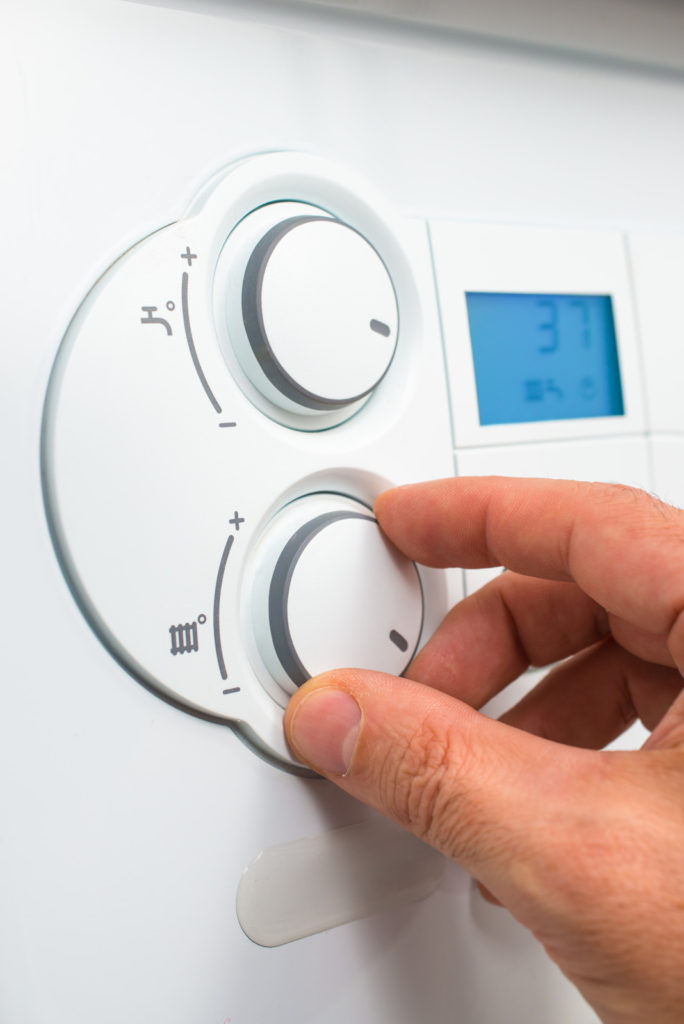
Boiler lifespan is an important consideration for any homeowner, as the cost of replacing a boiler can be substantial. In this article, we’ll delve into the factors that impact the lifespan of a boiler, as well as provide some general guidance on how long you can expect your boiler to last.
First, it’s important to note that the lifespan of a boiler can vary significantly depending on the type of boiler you have. Here are some general guidelines for the lifespan of different types of boilers:
- Combi boilers: These are the most common type of boiler in the UK, and they can last for around 10-15 years.
- Conventional boilers: These boilers, which heat water in a tank and then circulate it through radiators, can last for 15-20 years.
- System boilers: These boilers, which are similar to conventional boilers but don’t have a tank, can last for around 10-15 years.
- Oil boilers: These boilers, which burn oil to generate heat, can last for around 15-20 years.
Of course, the actual lifespan of your boiler will depend on a variety of factors, including the quality of the boiler, the amount of use it gets, and how well it has been maintained. Here are some tips for maximizing the lifespan of your boiler:
Regular maintenance
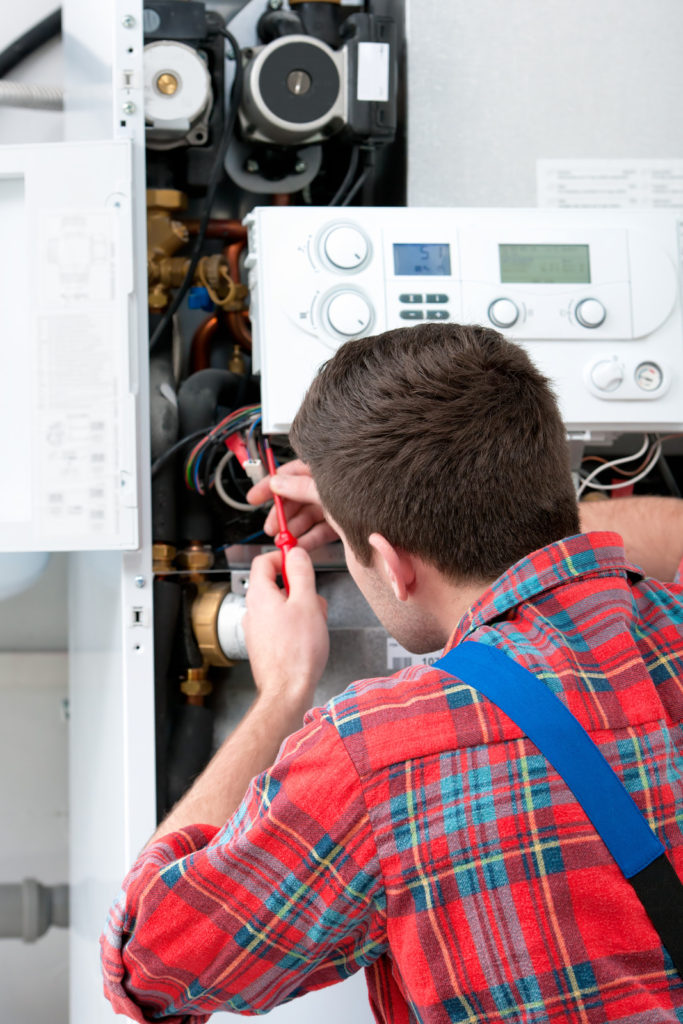
Having your boiler serviced annually by a qualified technician can help to ensure that it is running efficiently and effectively, and can also help to identify any potential issues before they become serious problems.
Use a magnetic filter
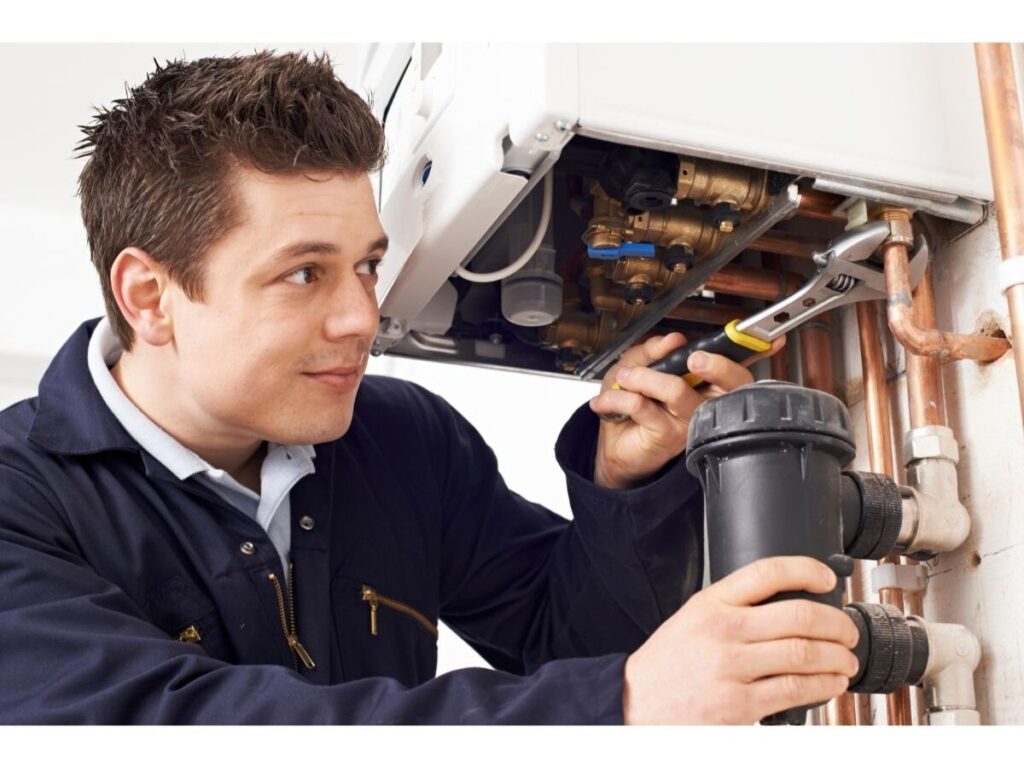
A magnetic filter works by trapping any metal particles that are present in the water. These particles can accumulate over time and can cause corrosion inside the boiler. This corrosion can lead to the efficiency of the boiler decreasing, as well as the possibility of the boiler breaking down.
By trapping these particles and preventing them from entering the boiler, the lifespan of the boiler can be significantly increased.
Top up central heating inhibitor
Using a central heating system inhibitor is a simple and cost-effective way to protect your boiler from corrosion and scale build-up, and to ensure that it continues to work efficiently for many years to come.
By investing in a central heating system inhibitor, you can save money on fuel bills, reduce your environmental impact, and ensure that your boiler will last for many years to come.
Insulate your home
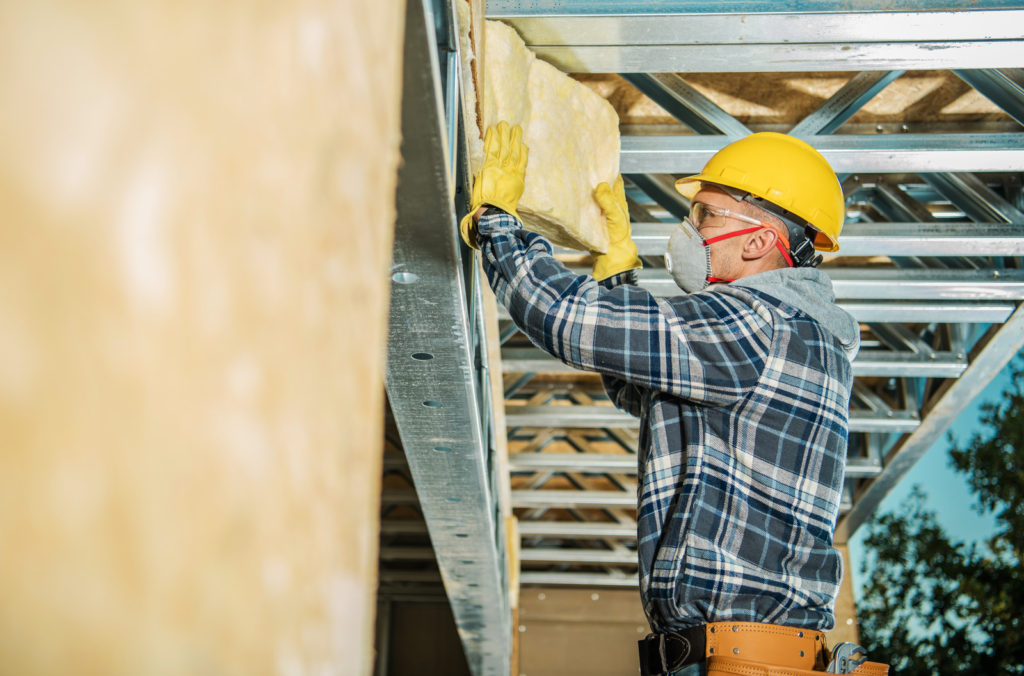
Proper insulation can help to keep your home warm and reduce the strain on your boiler, which can help it last longer.
Consider upgrading to a more efficient boiler
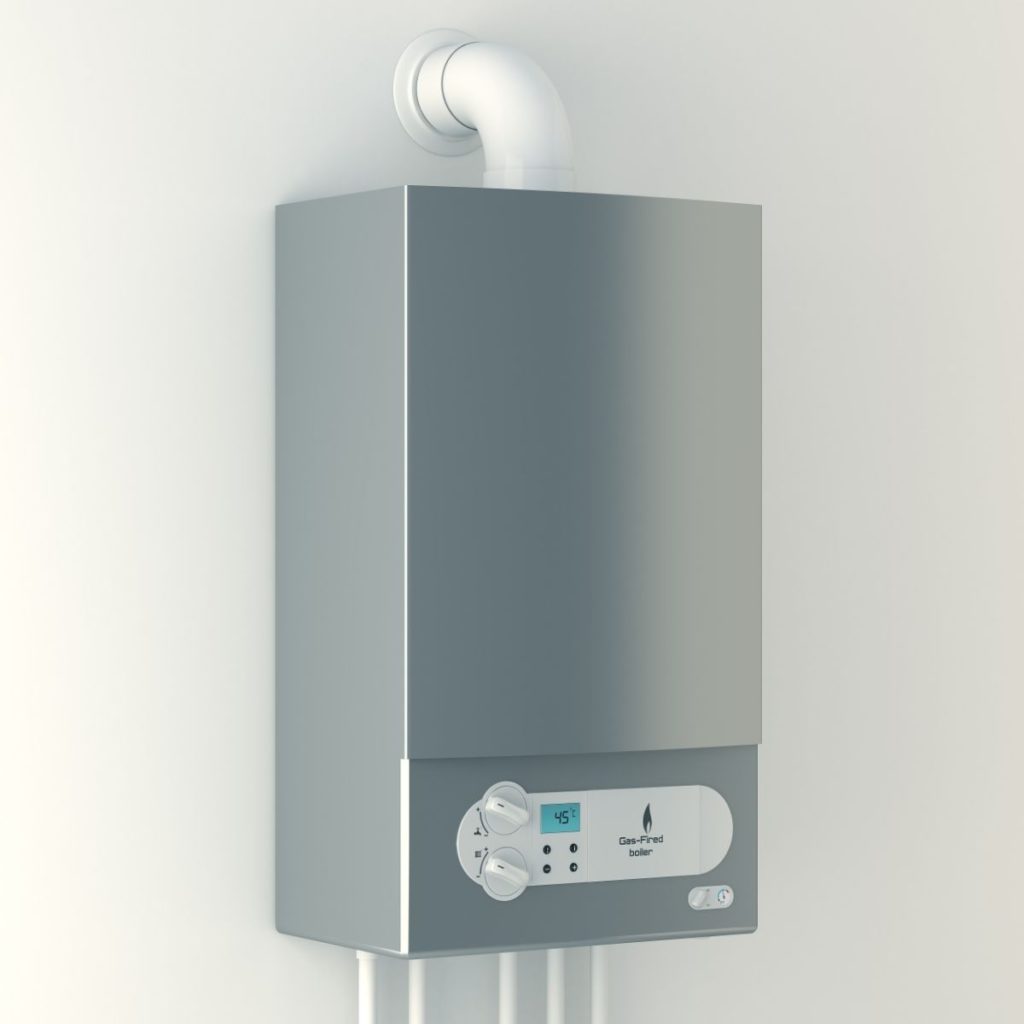
If your boiler is getting up there in age and you are considering replacing it, you may want to consider upgrading to a more efficient model. Newer boilers are much more efficient than older models, and they can save you money on energy bills in the long run.
In conclusion, the lifespan of a boiler can vary significantly depending on the type of boiler and the factors that impact its performance. By following the tips outlined above and keeping your boiler well-maintained, you can help to ensure that it lasts for as long as possible.
When should you replace your boiler?
There are a few signs that it may be time to replace your boiler:
- Age: If your boiler is more than 15 years old, it may be time to consider a replacement, as it may be less efficient and more prone to breakdowns.
- Frequent repairs: If you find yourself constantly having to repair your boiler or if the cost of repairs is becoming unsustainable, it may be more cost-effective to replace the boiler rather than continue to pay for repairs.
- Reduced efficiency: If your boiler is not operating as efficiently as it used to, it may be time to consider a replacement. This can be indicated by higher energy bills or a longer time to heat your home.
- Noises: Boilers that make unusual noises, such as knocking or banging, may be a sign of a problem that could be expensive to fix and may be a good indication that it’s time for a replacement.
- Leaks: If your boiler is leaking water, it could be a sign of a serious issue and may need to be replaced.
Overall, if your boiler is experiencing any of these issues or is getting up there in age, it may be time to consider replacing it. However, it is always a good idea to consult with a qualified engineer to assess the condition of your boiler and determine the best course of action.
Why is boiler efficiency important?
Boiler efficiency is important because it determines how much of the energy consumed by the boiler is converted into usable heat for your home. A more efficient boiler will use less energy to produce the same amount of heat, resulting in lower energy bills and a smaller carbon footprint.
Inefficient boilers, on the other hand, can waste a significant amount of energy, leading to higher energy bills and a greater impact on the environment.
Conclusion
Boilers normally last 10-15 years on average, however this may be influenced by factors such as boiler quality and proper maintenance. Combi boilers have a lifespan of up to 15 years, but conventional and system boilers have a lifespan of 15-20 years. Oil boilers have a lifetime of 15-20 years as well.
To extend the life of your boiler, get it serviced annually by a Gas Safe Registered engineer, use an inhibitor and a magnetic filter to prevent corrosion and sludge build-up, and consider a powerflush to clear out the system if it is older and having limescale or sludge build-up. Upgrading to a higher-quality, more efficient boiler can also result in lower energy bills.
